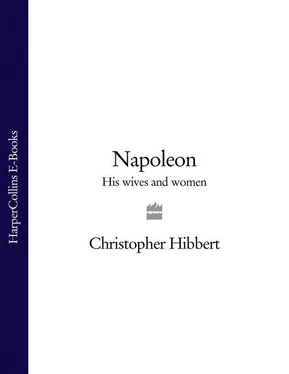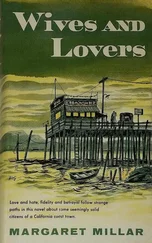He read a great deal, mostly history and political theory, the works of Machiavelli, accounts of the religion of the Aztecs, the government of India, of ancient Rome, and books about England, being struck by the ascendancy of Parliament and the decline of the monarchy whose power and the power of whose ministers in France must, he decided, be limited. He also wrote a great deal, papers on the handling and uses of artillery, essays on Plato’s Republic , on the ancient Greeks and Persians, on modern England and ancient Greece, on Marigny’s History of the Arabs under the Caliphs . He wrote hurriedly and far into the night and was often unable to decipher what he had written in the morning.
He made précis of passages that interested him, lists of words hitherto unfamiliar to him and curious facts from books which caught his fancy – such as Jean Gaspard Lavater’s The Art of Judging Character from Men’s Faces . Having read Marigny’s History of the Arabs he noted, ‘Soliman is said to have eaten 100 pounds of meat a day…Mahomet did not know how to read or write. I find this improbable. He had 17 wives.’ From Buffon’s Histoire Naturelle he copied out, with evident fascination, long passages about castration and about testicles – ‘Some men are born with only one, others have three; these men are stronger and more vigorous.’ His interest in such matters was at this time largely academic.
At Valence, he made the acquaintance of the family of a Mme Colombier whose daughter was named Caroline; but, as he later commented, ‘It will be considered scarcely credible, perhaps: our whole business consisted of our eating cherries together.’ On a brief visit to Paris in November 1787, when he was eighteen, he encountered a young prostitute in the Palais Royal one cold evening and took her to bed; but the experience seems to have made no deep impression upon him. He recorded in detail the conversation he had with her, the questions he asked: how could she bear to walk about in the arcades in such bitter weather? Was she not exhausted by such a life as hers? Was there not some other work which would be better suited to her health? She must come from the north to brave such cold as this? How did she lose her virginity? Was she angry with the army officer who took it? How did she come to Paris?
She told him another officer had brought her there. ‘He deserted me also,’ she said. ‘Now I have a third. I have been living with him for three years. He’s French, but has business in London. He’s there now. Let’s go to your place.’
‘What will we do when we get there?’
‘We’ll get warm. Come on. You’ll have great pleasure.’
Whether he did or not Napoleon did not say. He did say, however, that ‘more than most people’, he hated prostitution and always ‘felt sullied by a look from women of that sort’, but that this young woman’s pale cheeks and soft voice ‘at once overcame [his] doubts’.
When, in June 1788, Napoleon had been posted from Valence to Auxon, he had, in order to ease the burdens imposed upon his mother, offered to have the eleven-year-old Louis, then his favourite brother, to stay with him; and he did what he could to help Letizia when, following the death of their friend Marbeuf and the establishment in Corsica of a new, stricter authority by officials of the Ministry of Finance, subsidies due to her for improvements carried out on the family’s land were withheld. He wrote letters of protest to the new authorities in Corsica; and he went to Paris to press in person his mother’s claims.
After the outbreak of revolution in Paris the following year, Napoleon warmly welcomed the decrees of the Constituent Assembly and the formulation of a new constitution. Many of his fellow-officers went abroad in apprehension or disgust; but he remained to become Secretary of the local Society of Friends of the Constitution and to take an oath ‘to die rather than allow a foreign power to invade French soil’.
He spent his leaves in Corsica. His mother, who had given birth to thirteen children, five of whom had died in infancy, was unwell, still suffering from the after-effects of puerperal fever and, occasionally, painful stiffness in her left side. He took her to Guagno for a course of the waters there; but she found them of little use. She was still a good-looking woman, though, and was always neatly dressed in her widow’s weeds. She had received two offers of marriage, but had declined them both for her children’s sake.
When Napoleon went on leave in September 1791, Joseph was by then a lawyer – twenty-three years old, and a rising figure in local government. Lucien was sixteen, Louis three years younger; Jérôme, a rather tiresome, cheeky boy, was nine. Elisa, at fourteen the oldest of the three girls, was still at school at St Cyr; her sister, Pauline, Napoleon’s favourite, was eleven, and Caroline was nine.
In caring for them their mother had the help of but one servant now, Severia, who was paid a mere pittance – all that the family could afford, since a contract entered into by Carlo with the French government for a plantation of ten thousand mulberry trees for the manufacture of silk had been cancelled.
Carlo’s old uncle, Luciano, the Archdeacon, who now spent most of his time in bed nursing his gout, was known to have concealed in his mattress a large bag of gold, the profits from a number of most un-archdiaconal dealings in land, farm animals and wine; but he was unwilling to part with a single coin. An attempt by the beguiling Pauline, who was sent to his room to see if she could lay her hands on one or two while his attention was distracted, ended in rowdy failure when the whole bag tumbled to the floor. Alarmed by the old man’s cries, Letizia rushed downstairs to see what had happened. Uncle Luciano informed her that he was only looking after the gold for a friend. Letizia picked up the coins and handed them to him. He counted them carefully before replacing them in the bag and stuffing the bag back into the mattress.
The old man now had but a short time to enjoy whatever comfort his hoard of gold could give him. In the hope of bringing him some relief from his gout and his other ailments, Napoleon, who still had a lingering affection for him, wrote to a Swiss doctor, Simon Tissot, for his advice. But Tissot, who had written a number of eccentric though celebrated books – in one of which he propounded the view that masturbation led inevitably to insanity – was not prepared to help. He endorsed the letter as of ‘little interest’ and did not trouble to send a reply.
Soon afterwards, Uncle Luciano died, leaving his gold to his nephew’s sons and enabling Napoleon to take part in the expensive business of Corsican politics and to ensure his election to the command of a battalion in the Corsican National Guard at the age of twenty-two.
Back in Paris, he was a witness of the growing violence of the Revolution, of the attack on the Tuileries and the events which led to the prison massacres of 7 September 1792. Three weeks before the massacres, his sister Elisa’s convent at St Cyr was closed and Napoleon, concerned for the fifteen-year-old girl’s safety, went to fetch her, bringing her back to Paris in her black school uniform and feathered taffeta bonnet.
Elisa had left home soon after her eighth birthday and had received a rigorous education at the school which had been founded by Louis XIV’s mistress, Mme de Maintenon. Horace Walpole had seen the girls there marching off to chapel two by two in a most orderly fashion, ‘each band headed by a nun…to sing the whole service’. There were no signs then of the self-confident woman Elisa was later to become. On a previous visit, when Napoleon had visited the school with Mme Permon, Elisa had come into the room looking miserable and had burst into tears. When asked what the trouble was, she had said that she had no money to contribute to a farewell party which was being given for one of the other girls. Mme Permon gave her some.
Читать дальше











